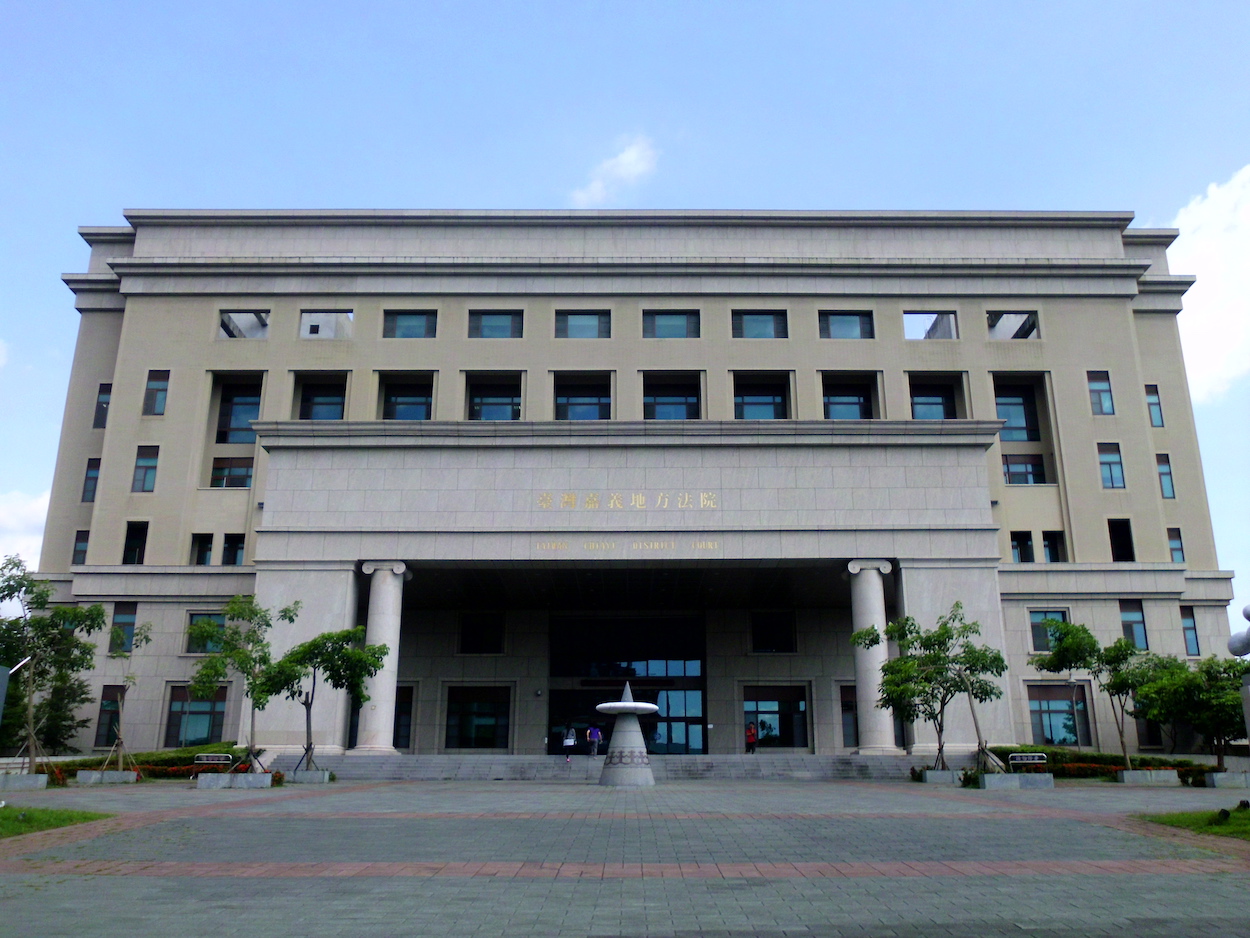by Brian Hioe
語言:
English
Photo Credit: Lexcie/WikiCommons/CC
ISSUES OF MENTAL health in Taiwan are in the spotlight after a Chiayi District Court ruled the killer of a railway officer to be “Not Guilty” on the basis that the man suffers from schizophrenia. The killer, a fifty-five-year-old man surnamed Cheng, is to undergo treatment for five years and can be released on 500,000 NTD bail, but he remains in jail, reportedly because his family could not pay the bail.
Cheng was on trial for stabbing and killing Railway Police Bureau officer Lee Cheng-han on July 3rd last year. The not guilty verdict has resulted in a great deal of strong public reactions. Among those to have expressed public outrage regarding the ruling include Lee’s parents.
 The Chiayi District Court. Photo credit: 勤岸/WikiCommons/CC
The Chiayi District Court. Photo credit: 勤岸/WikiCommons/CC
After the sentence from the Chiayi District Court, there have been calls from politicians for stiffer legal punishments to be put in place for individuals that commit violent crimes. KMT politicians such as legislator Wan Mei-ling have called for five to ten years of compulsory treatment of individuals with mental disorders that commit violent crimes. KMT legislator Yeh Yu-lan also called for increasing punishments for individuals that have assaulted medical personnel.
Public pressure has been sufficient that comments from President Tsai Ing-wen have been interpreted as voicing support for an appeal of the verdict, Premier Su Tseng-chang expressed disappointment at the verdict, and Minister of Justice Tsai Ching-hsiang stated that violent acts against police officers are not to be tolerated. National Police Agency Director-General Chen Chia-chin also stated that he would appeal the ruling, claiming to be defending the interests of police officers.
Physician Shen Cheng-che of the Taichung Veterans General Hospital, who conducted Cheng’s mental evaluation, has faced harassment from the public since the not guilty ruling. Two medical associations, the Taiwan Academy of Psychiatry and the Law, and the Taiwanese Society of Psychiatry, have expressed support for Shen, stating that they do not believe that mental health evaluations should be decided by public opinion. The Judicial Yuan’s website has also seen a large influx of comments criticizing the verdict.
The Judicial Reform Foundation also released a statement criticizing statements by Tsai and Su, as president and premier, for interfering in the legal process through statements suggesting opposition to the verdict. In its statement, the Judicial Reform Foundation called attention to lacking social awareness of mental illness in society, as well as inadequate training by police regarding how to deal with individuals suffering from mental illness.
Indeed, resources for mental health can be lacking in Taiwan, with the continued stigmatization of mental illness in society. When cases of violent crime involve mental illness, one sometimes sees reactions that call for the increased punishment of individuals with clear mental health issues, as though this will prevent violent crimes from being committed by people with mental health issues in the future.
By contrast, what is not proposed is taking action to aid individuals with mental illness, and to ensure that individuals do not fall out of the social safety net by building more robust social institutions. Cheng, for example, ceased medical treatment and stopped taking medication two years ago, but there was no follow-up with him from community mental health care or other institutions afterward. The second individual executed by the Tsai administration, who was executed in April, was also thought to have suffered from mental illness by some, and the execution took place in spite of this.
 Photo credit: Connie Ma/WikiCommons/CC
Photo credit: Connie Ma/WikiCommons/CC
In the wake of public outrage after the ruling, it is probable that such issues will again fail to be discussed in Taiwan, with calls for increased punishments instead. Likewise, it is very likely that prosecutors will appeal the ruling to try and seek punitive measures against Cheng.
In particular, it is common for there to be renewed calls for the use of the death penalty in Taiwan whenever there is a high-profile murder incident and it is not impossible that this will take place regarding Cheng. It is generally thought that use of the death penalty has the majority support of the public, with the view that this is a deterrent to violent crime. As a result, political administrations will sometimes employ the death penalty as a means of satisfying public calls for its use.
For example, a wave of dismemberment incidents in summer 2018 that rocked society led the Tsai administration to carry out its first execution in September 2018. Notably, the Tsai administration executed a man who was previously on death row who had carried out killings which were not part of the wave of dismemberment incidents, but which resembled them. This strongly suggests that the execution was carried out to satisfy the public, particularly with KMT politicians blaming the Tsai administration for allowing such incidents to happen by not using the death penalty as a deterrent.

